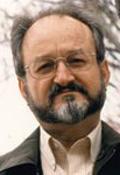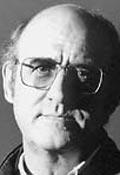Planning worship?
Check out our sister site, ZeteoSearch.org,
for 20+ additional resources related to your search.
- |
User Links
Person Results
‹ Return to hymnal





Export as CSV
Suzanne Toolan
b. 1927 Hymnal Number: 74 Composer of "[Yo soy el Pan de vida]" in Cantemos al Señor
Suzanne Toolan
Giovanni Pierluigi da Palestrina

1525 - 1594 Person Name: Palestrina Hymnal Number: 288 Composer of "[Aleluia]" in Cantemos al Señor Giovanni Pierluigi (da Palestrina) Italy 1525-1594. Born at Palestrina, Italy, near Rome, then part of the Papal States to Neopolitan parents. As a youth he became a chorister at the Santa Maria Maggiore basilica in the Rome Diocese. This allowed him to learn literature and music. In 1540 he moved to Rome, where he studied in the school ofr the Hugenot, Claude Goudimel. He also studied with Robin Mallapert and Firmin Lebel. Orlando Di Lasso was also a musical advisor to him. From 1544-1551 he was organist at the Cathedral of St Agapito, the principle church of his native city. In 1547 he married Lucrezia Gori, and they had four children: Rodolfo, Angelo, Iginio, and a daughter. In 1551 Pope Julius III (previously Bishop of Palestrina) appointed him ‘maestro di cappella’, or musical director of the Cappella Giulia (choir). Pierluigi dedicated his first published compositions to Pope Julius III (1554), known as ‘the book of Masses’. It was the first book of masses by a native composer, since most sacred works in those days were from low countries (France or Spain). In 1555 Pope Paul IV ordered that all papal choristers should be clerical. As Pierluigi married early in life and had four children, he was unable to continue in the chapel as a layman. During the next decade he held positions similar to his Julian Chapel appointment at other chapels and churches in Rome, including St John Lateran (1555-1560), and Santa Maria Maggiore (1561-1566). In 1571 he returned to the Julian Chapel and remained at St Peter’s for the rest of his life. The 1570s was a decade of difficulty for him, as he lost his brother, two sons, and his wife in three separate outbreaks of plague (1572-1575-1580). In 1578 he was given the title of ‘Master of Music’ at the Vatican Basilica. He thought of becoming a priest at this time, but instead married a wealthy widow, Virginia Formoli, in 1581, widow of a wealthy merchant, which gave him financial independence (he was not well-paid as choirmaster). He spent considerable time administering to her fortune, but also was able to compose prolifically until his death. He also helped to found an association of professional musicians called the Vertuosa Compagnia dei Musici. He died in Rome of pleurisy. He left hundreds of compositions, including 1045 masses, 68 offertories, 140 madrigals, 300+ motets, 72 hymns, 35 magnificats, 11 litanies and several sets of lamentations. There are two comprehensive editions of his works: a 33-volume edition published by Breitkopf and Hartel, in Leigzig, Germany, between 1862-1894, edited by Franz Xaver Habert, and a 34-volume edition published in the mid 20th century by Fratelli Scalera, in Rome, Italy, edited by R Casimiri and others. As a Renaissance musician and composer of sacred music he was the best known 16th century representative of the Roman School of musical composition. He had a long-lasting influence on the development of church and secular music in Europe, especially on the development of counterpoint, his work considered the culmination of Renaissance polyphony. Very famous in his day, he was considered by some the legendary ‘savior of church music’. A 2009 film was produced by German television about him, titled: ‘Palestrina – Prince of Music’.
John Perry
Giovanni Pierluigi da Palestrina
Lewis H. Redner

1831 - 1908 Person Name: Luis Redner Hymnal Number: 188 Composer of "[Pequeño pueblo de Belén]" in Cantemos al Señor Lewis Henry Redner (1831-1908) was born in Philadelphia, where he became a real estate agent and served on weekends as an organist and Sunday School Superintendent. He spent nineteen years at Holy Trinity church where Phillip Brooks was rector, and is credited with increasing attendance at the Sunday School from thirty-one to more than a thousand. In 1868 Brooks asked him to write a tune for his new text for children inspired by his recent trip to Bethlehem. Redner composed the tune the night before it was to be sung in worship on Sunday morning. The text and tune were first published in 1894 in The Church Porch, where the tune was named ST. LOUIS, possibly after the composer’s name. Redner is remembered today because of this one tune that has remained a Christmas favorite.
Emily Brink
Lewis H. Redner
Juan A. Espinosa

b. 1940 Person Name: J. A. Espinosa Hymnal Number: 18 Composer of "[Cerca de Ti, Señor]" in Cantemos al Señor Born: 1940, Badajoz, Spain.
Internationally recognized as one of the leading composers of Spanish liturgical music, Juan Antonio Espinosa composes songs that emphasize hope for the oppressed, social justice, and the power of faith. Currently, he directs the Association for the Promotion of Religious Music (APROMUR) in Spain and serves as a liturgical musician at San Estanislao Parish in Madrid.
After living for a time in Peru, Juan published music reflecting the Andes style and Latin American social realities. Hispanic assemblies in the U.S. are familiar with Juan's uplifting music through his songs in the OCP collections Pescador de Hombres and Resucitó, and in Cánticos, Segunda Edición, Misal Del Día, Unidos En Cristo Música and Flor y Canto, Segunda Edición.
His first collection for OCP was Al Señor del Nuevo Siglo.
--www.ocp.org/artists/358
Juan A. Espinosa
Bartholomäus Crasselius

1667 - 1724 Person Name: Crasselius Hymnal Number: 159 Composer of "WINCHESTER NEW" in Cantemos al Señor Crasselius, Bartholomäus, son of Johannes Crasselt, sheepmaster at Wemsdorf near Glauchau, Saxony; was born at Wernsdorf, Feb. 21, 1667. After studying at Halle, under A. H. Francke, he became, in 1701, pastor at Nidda, in Wetteravia, Hesse. In 1708 he was appointed Lutheran pastor at Düsseldorf, where he died Nov. 30, 1724, after a somewhat troubled pastorate, during which he felt called upon to testify strongly and somewhat bitterly against the shortcomings of the place and of the times (Koch, iv. 418-421; Allg. Deutsche Biographie, iv. 566-67; Bode, p. 55; manuscript from Pastor Baltzer, Wernsdorf; the second dating his call to Dusseldorf 1706). Of the 9 hymns by him which Freylinghausen included in his Geistreiches Gesang-Buch, 1704, two have been translated:—
i. Dir, dir, Jehovah, will ich singen. Prayer. A hymn of supplication for the spirit of grace rightly to praise and worship God, founded on St. John, xvi. 23-28, the Gospel for Rogation Sunday. First published in the Geistreiches Gesang-Buch &., Halle, 1697, p. 587, in 8 stanzas of 6 lines. Repeated as No. 291 in Freylinghausen's Gesang-Buch, 1704, and since in almost all collections, as in the Berlin Geistliche Liedersegen. ed. 1863, No. 936.
The well-known tune (known in England as Winchester New as reduced to L. M. in Hymns Ancient & Modern, No. 50) which appeared with this hymn in Freylinghausen, 1704, is altered from a melody to “Wer nur den lieben Gott lasst walten," in the Musicalisch Handbuch der Geistlichen Melodien, Hamburg, 1690. See L. Erk's Choralbuch, 1863, No. 63, and p. 247; also No. 261. The common, but erroneous ascription of this tune to Crasselius arose from confusion between the authorship of the tune and the words. There is no evidence that Crasselius wrote any tunes.
Translations in common use:—
1. Jehovah, let me now adore Thee, a good and full translation by Miss Winkworth, as No. 117, in her Chorale Buch for England, 1863, set to the 1704 melody.
2. To Thee, 0 Lord, will I sing praises, in full, by Dr. M. Loy, in the Evangelical Review, Gettysburg, July 1861, and as No. 216 in the Ohio Lutheran Hymnal, 1880.
Other translations are:—
(i) "To Thee, Jehovah, I'll be singing," in the Supplement to German Psalmody, ed. 1765, p. 41, and in Select Hymns from German Psaltery, Tranquebar, 1754, p. 72. (2) "Draw me, O Father, to the Son," a translation of stanza ii., by P. H. Molther, as No. 185 in the Moravian Hymn Book, 1789. In the ed. of 1886 it is enlarged to 3 stanzas by the addition of the translation of stanzas i. and viii., and in this form it begins:—“To Thee, Jehovah, will I sing." (3) "To Thee, O Lord, I come with singing," by Miss Burlingham, in the British Herald, April, 1866, p. 248, repeated as No. 402 in Reid's Praise Book, 1872.
ii. Erwach, 0 Mensch, erwache. Lent. Appeared in Freylinghausen's Gesang-Buch, 1704, No. 266, in 4 stanzas of 9 lines. Included in Bunsen's Versuch, 1833, No. 298, and Allgemeine Gesang-Buch 1846, No. 13. Translated as "Awake, O man, and from thee shake," by Miss Winkworth, 1855, p. 61.
The hymn, "Heiligster Jesu, Heiligungsquelle," ascribed to Crasselius, is noted under J. v. Lodenstein. See also "Hallelujah! Lob, Preis und Ehr." [Rev. James Mearns, M.A.]
--John Julian, Dictionary of Hymnology (1907)
Bartholomäus Crasselius
Elise Shoemaker Eslinger
b. 1942 Person Name: Elise Shoemaker Hymnal Number: 4 Translator of "Aleluya" in Cantemos al Señor
Elise Shoemaker Eslinger
Miguel Manzano

b. 1934 Person Name: M. Manzano Hymnal Number: 48 Composer of "[Cuando el pobre nada tiene y aun reparte]" in Cantemos al Señor Miguel Manzano is a Spanish composer and singer. He was born in Aillamor de Cardozo near the border with Portugal. Miguel began his religious musical career at the age of 8 as cantor at the Cathedral of Zamora, Spain. He studied solfeg, piano, organ and harmonium with the renowned teacher, Gaspar Arabaolaza. Later on, he began studies at the Higher School of Sacred Music in Madrid, where he studied Rhythm and Gregorian Modality, as well as Harmony and Religious Polyphony. He furthered his studies of language and musical rhythm at the Catholic Institute of Paris.
Miguel's internationally recognized music has been chosen to complete the repertoire of the National Liturgical Hymnal of the Espicopal Committee of Spanish Liturgy. At present he is Professor of Ethnic Music at the Higher Conservatory of Music in Salamanca.
--www.ocp.org/artists/1987
Miguel Manzano
Alfredo Morales
b. 1927 Person Name: Morales Hymnal Number: 311 Composer of "[Amén]" in Cantemos al Señor
Alfredo Morales
Jose Antonio Olivar
b. 1939 Person Name: J. A. Olivar Hymnal Number: 44 Author of "¡Le Conoceis?" in Cantemos al Señor José Antonio Olivar is also a writer and journalist Efe Agency and a very dear person in Lastres. The son of a seafaring family, Olivier went through difficult times during his childhood. He lost his parents and four brothers and faced the harsh post-war period as an orphan.
Hosted by his grandmother, he studied at the Seminary of Covadonga and Oviedo and he built a career of great prestige and recognition throughout the country. He has won several national awards for poetry and has worked as a journalist in popular newspapers and national agencies.
In his journalistic work out the last time as deputy director of the magazine "Hello!". Olivar printed in this genre of magazines and friendly style compatible with both newsworthy. He has traveled around the world, interviewing and making friends with the most diverse personalities from all fields of social life, art and politics. It also cites his role as music composer with known letters to both religious and secular songs. The prize "Honor Manín 2012" will be presented by the choir sailor on the eve of the big day the festival of San Roque de Llastres, on August 18th, at eight o'clock.
--https://www.lne.es/oriente/2012/06/24/jose-antonio-olivar-subdirector-revista-20866231.html
Jose Antonio Olivar
Alberto Taulé
1932 - 2007 Person Name: Taulé Hymnal Number: 152 Composer of "[Una cosa pido al Señor]" in Cantemos al Señor Alberto Taulé (b. Barcelona, Spain, 1932; d. March 24, 2007), a Roman Catholic priest and musician from the culturally distinctive and semi-autonomous Catalunya region of northeastern Spain.
Sing! A New Creation
Alberto Taulé


 My Starred Hymns
My Starred Hymns


